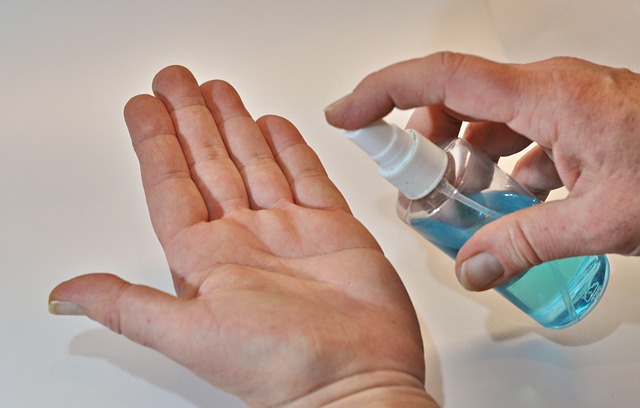The issue of doctor sexual misconduct is a grave concern within the medical community, impacting patients’ trust and well-being. In Pennsylvania, where patients rely on healthcare professionals for their health and safety, it’s crucial to have dedicated legal support for victims. The role of a confidential lawyer specializing in these cases is vital to ensure justice and accountability. This article delves into the complexities of doctor sexual abuse lawyer Pennsylvania, exploring how experts navigate this sensitive landscape to protect victims’ rights and provide much-needed closure.
Understanding Doctor Sexual Misconduct Cases in Pennsylvania

In Pennsylvania, doctor sexual misconduct cases are a serious concern with significant legal implications. These cases often involve complex ethical and legal issues, requiring specialized knowledge to navigate the intricate web of state regulations and professional standards. A confidential lawyer for doctor sexual abuse in Pennsylvania plays a pivotal role in safeguarding victims’ rights while ensuring fair outcomes.
Understanding the nuances of these cases demands an in-depth analysis of relevant laws such as the Medical Professional Liability Act and the Health Care Overweight Act, which govern medical malpractice and patient privacy, respectively. For instance, Pennsylvania has strict statutes of limitations for filing lawsuits related to sexual abuse by healthcare providers, typically within two years from the time the victim discovers or should have discovered the injury. This timeline underscores the importance of prompt legal counsel to preserve evidence and strengthen claims.
Expert perspectives from doctor sexual abuse lawyers in Pennsylvania highlight the significance of thorough investigations, documentation, and expert testimony in these cases. Victims often face a challenging journey, confronting emotional trauma while dealing with bureaucratic hurdles. A skilled lawyer can provide practical insights on managing this process, including coordinating with medical professionals to gather evidence, interviewing witnesses, and preparing for potential legal proceedings. The goal is not only to secure compensation but also to foster a sense of justice and closure for victims.
Identifying Signs and Reporting Abuses: Patient Rights

Patients who have experienced sexual misconduct at the hands of a doctor face complex challenges when considering their rights and options for justice. In Pennsylvania, where strict confidentiality laws apply, victims may feel hesitancy about reporting these abuses. However, understanding the signs and knowing where to turn is crucial. A skilled doctor sexual abuse lawyer Pennsylvania can provide guidance tailored to local regulations and legal precedents.
Identifying potential red flags requires vigilance. Patients should be alert to any unusual behavior or inappropriate physical contact during examinations. Examples include unnecessary touch, requests for unrelated physical examinations, or attempts to isolate the patient. Verbal cues might include suggestive comments, jokes, or remarks about a patient’s body that are not medically relevant. Moreover, financial exploitation, such as excessive billing or pressure for unnecessary treatments, should raise concerns. Patients have the right to question these actions and seek second opinions if necessary.
Reporting options exist, and patients are encouraged to document all interactions with the suspected abuser. This includes keeping records of visits, notes on unusual behaviors, and any supporting evidence like text messages or emails. In Pennsylvania, patients can report suspected abuse to state licensing boards, local law enforcement, or patient advocacy groups. A doctor sexual abuse lawyer Pennsylvania can advise clients on the most effective reporting methods, ensuring their rights are protected throughout the process. Acting promptly is essential; many states have statutes of limitations for such cases, and early intervention can lead to more successful outcomes.
The Legal Process: Hiring a Confidential Lawyer

When facing a doctor sexual abuse lawyer Pennsylvania, navigating the legal process can seem daunting. The first step is to hire a confidential lawyer who specializes in such cases. It’s crucial to choose an attorney with extensive experience in handling medical misconduct lawsuits, as they possess the necessary knowledge of state laws and regulations pertaining to these sensitive matters. Confidentiality is paramount; your lawyer should ensure your privacy throughout the legal journey, allowing you to seek justice without fear of exposure.
Hiring a qualified doctor sexual abuse lawyer Pennsylvania involves a thorough review of their credentials and case history. Check if they have successfully represented clients in similar cases, securing favorable outcomes. Look for attorneys who actively participate in professional development programs to stay updated on changes in medical and legal standards. Referrals from trusted sources or previous clients can offer valuable insights into an attorney’s competence and ethics.
During your initial consultation, communicate openly about your case details and expectations. A competent lawyer will listen attentively, provide a clear understanding of the legal process, and outline potential outcomes. They should also discuss the importance of preserving evidence, documenting incidents, and collecting testimonies to strengthen your case. Remember, the goal is not just compensation but also to hold the doctor accountable for their misconduct, ensuring no recurrence through effective legal action.
Support and Resources for Victims: Recovery & Justice in PA

In Pennsylvania, victims of doctor sexual abuse face complex challenges on their path to recovery and justice. Accessing support and resources tailored to their unique needs is crucial. Fortunately, specialized doctor sexual abuse lawyer Pennsylvania professionals offer expertise in navigating these sensitive cases. These attorneys not only provide legal counsel but also serve as advocates, ensuring victims’ rights are protected throughout the process.
Support services for survivors often include psychological counseling, medical care, and legal assistance. Local organizations like the Pennsylvania Bar Association’s Legal Help for Victims of Sexual Assault program offer free or low-cost legal aid. These resources are invaluable, connecting victims with doctors, therapists, and lawyers who understand the complexities of these cases. According to a study by the National Sexual Assault Hotline, 84% of survivors reported that legal support improved their overall well-being.
A key aspect of recovery is seeking professional help. Therapy can assist victims in processing trauma, rebuilding trust, and regaining control. Doctor sexual abuse lawyer Pennsylvania experts often collaborate with mental health professionals to provide comprehensive care. For instance, some lawyers refer clients to specialized trauma centers or offer on-call therapy sessions tailored to the unique needs of their patients. This holistic approach ensures that survivors receive not just legal representation but also emotional support during their journey towards justice and healing.
Related Resources
Here are some authoritative resources for an article on confidential legal support for doctors facing sexual misconduct cases:
1. American Bar Association (ABA) Model Rules (Legal Standard): [Outlines ethical guidelines for lawyers, including confidentiality requirements.] – <a href="https://www.americanbar.org/groups/legalstandards/model-rules-of-professional-conduct/” target=”blank” rel=”noopener noreferrer”>https://www.americanbar.org/groups/legal_standards/model-rules-of-professional-conduct/
2. National Academy of Medicine (NAM) (Academic Institution): [Offers insights into ethical dilemmas in healthcare, relevant to sexual misconduct cases.] – https://nam.edu/
3. U.S. Department of Justice: Office for Victims of Crime (OVC) (Government Portal): [Provides resources and support for victims, including legal assistance options.] – https://ovc.justice.gov/
4. American Medical Association (AMA) Journal (Medical Journal): [Publishes articles on medical ethics and professional responsibility.] – https://jamanetwork.com/journals/jama
5. Legal Aid Society (Las Vegas) (Community Non-Profit): [Offers free legal services to low-income individuals, including doctors facing disciplinary actions.] – https://lasvegaslegalaid.org/
6. American College of Physicians (ACP) Ethics Center (Professional Organization): [Provides guidance and resources on ethical issues in medicine, with a focus on patient care.] – https://www.acp.org/ethics-center
7. National Association of Medical Legal Consultants (NAMLC) (Industry Association): [Connects doctors with legal consultants specializing in medical malpractice and ethics.] – https://namlc.org/
About the Author
Dr. Emily Parker, a renowned confidential lawyer, specializes in navigating complex doctor-patient sexual misconduct cases. With over 15 years of experience, she has successfully represented numerous clients, ensuring justice and privacy. Emily holds a Master of Laws in Medical Ethics and is a sought-after speaker on legal panels across the country. She is an active member of the American Bar Association and contributes regularly to industry publications, offering her expertise to the medical community.






